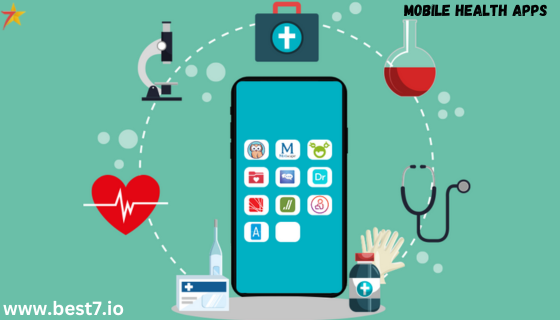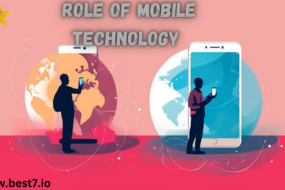
Healthcare has been transformed in recent years through mobile health apps, which are empowering patients to manage their health. As users increasingly turn to digital tools for information, they are tapping into resources that measure results and simultaneously help people track their health information and personal care plans. Indeed, mobile health apps have undoubtedly changed the way patients take ownership of their wellness and engage in a healthcare setting.
The Rise and Dominance of Mobile Health Apps
Mobile health apps have been all the rage in the last decade or so. It was estimated back in 2023 that the global mobile health apps market could top $150 billion, driven by key features of digital health technology and patient empowerment. It highlights the growing importance of mHealth apps in driving innovation in healthcare.
The Future of Health Management
In fact, Research and Markets reported that more than half of all smartphone users will have downloaded one health app by 2025. It emphasizes the global recognition of mobile as a tool for health management. As mHealth apps become more user-friendly and powerful, they will undoubtedly add to their already significant rosters of adherents.
Essential Features of Mobile Health Apps
Mobile health apps contain many helpful features to assist patients with managing their health. Such apps are often equipped with health tracking capabilities, where users can track essential data like heart rate, blood pressure, and physical activity. When patients see these numbers on their phones in real-time, it enables them to make better choices about their health.
Impact on Physical Activity and Health Outcomes
One study, published in the American Journal of Preventive Medicine, showed that people who use health monitoring apps are more likely to engage in regular physical activity, which is linked to a range of positive health outcomes. For example, nearly 70% of users accessed their medical records electronically to adjust their lifestyle based on data like blood pressure or blood sugar collected at home.
Chronic Disease Management through Mobile Health Apps
Mobile health applications are also beneficial for managing chronic diseases. Patients living with conditions like diabetes, hypertension, and asthma have reaped the benefits of symptom tracking, medication reminders, and lifestyle adjustments. Studies have shown that these apps can significantly enhance medication adherence and decrease hospital readmissions.
Telemedicine Integration in Mobile Health Apps
Mobile health apps are more versatile now with telemedicine features. Patients can communicate with healthcare providers through video chat or messaging, allowing those in rural or underserved areas to access medical expertise without travel. The COVID-19 pandemic drove a massive rise in telehealth use, which led to high levels of patient satisfaction.
Personalized Health Plans and Recommendations
Personalized health plans are another important feature of mHealth apps. These apps can analyze users’ health behaviors and preferences to offer tailored recommendations. For instance, fitness apps create customized workout plans based on users’ fitness levels, which helps increase adherence and engagement.
Enhancing Patient Engagement through Mobile Health Apps
The rise in mobile health apps has brought attention to patient engagement. These apps make health information accessible, encouraging patients to participate actively in their healthcare. Studies have shown that users of mobile health apps have higher engagement with their physicians, enabling harmonious care across the healthcare ecosystem.
Health Education and Information Accessibility
Mobile health apps serve as essential sources of health information and education. They provide resources like articles, videos, and interactive content to improve users’ health literacy. This access to reliable information helps patients understand their conditions better, allowing them to make informed treatment decisions.
Real-Time Monitoring and Remote Support
Mobile health apps enable healthcare providers to monitor patients’ health status in real time, which is particularly useful for chronic condition management. For instance, heart failure patients can track symptoms and weight, allowing healthcare providers to detect early signs of decline and intervene as needed.
Self-Care Tools for Mental Health
Many mobile health apps include self-care tools for mental health, offering features like mindfulness exercises, meditation guides, and mood tracking. Studies indicate that using mental health apps can significantly reduce symptoms of anxiety and depression, contributing to holistic health management.
The Future of Mobile Health Apps and AI Integration
As technology advances, mobile health apps hold enormous potential for growth. With AI and machine learning, apps can analyze user-specific data points and provide personalized recommendations. The integration of wearable devices will further enhance tracking and monitoring, enabling people to have better control over their health.
Addressing Challenges in Mobile Health App Usage
While Mobile Health apps offer numerous advantages, challenges remain, such as privacy concerns, data security, and access disparities. Ensuring compliance with regulations and expanding digital literacy and technology access are critical steps in making Health tools accessible and secure for everyone.
A Future Shaped by Mobile Health Apps
In a rapidly evolving healthcare landscape, mobile health apps will remain central to patient engagement and improved health outcomes. These digital tools enable ready access to health information, communication with providers, and personalized care, paving the way for even greater innovation in healthcare for future generations.












